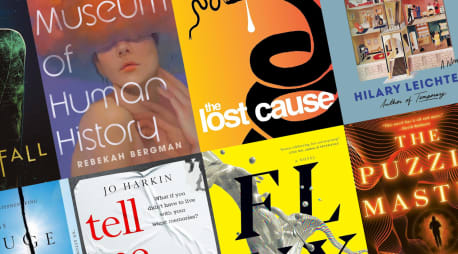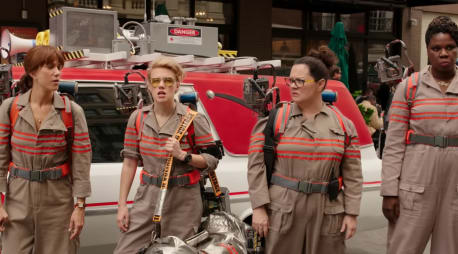Here we have new book recommendations from the Otherland Bookshop Berlin. With an English book market so much bigger than the German, not every book can be translated. This article is for those of you who also read in English.
Otherland Book Recommendations Science Fiction 6/24

Science Fiction
Grace Curtis | Floating Hotel
Hodder & Stoughton: €21
Carl has been on the intergalactic space-hotel The Grand Abeona for forty years, ever since he smiled his way aboard as a 12-year-old stowaway. Now he is manager of a colorful crew.
There‘s Sasha, the chief technician with a mouth like a sailor; Uwade, the former child-star who now runs the show as the Abeona‘s unshakable receptionist; and Dunk, an über-friendly sous-chef with a gangland past. Carl truly has a big happy family – or at least a big family. But the Grand Abeona has more secrets than its faded glory lets on. The whole place is a hive of mysteries. Like, who is sending love letters over the staff messaging pipes? Why are the organizers of the annual Problem-Solvers‘ Conference packing guns? Why has the underworld been warned to stay away from the hotel? And – perhaps strangest of all – who is actually driving the ship?
Life on the Grand Abeona is all fun and games. Until someone pushes you out of an airlock...
Grace Curtis is really good at building an intrigue, dropping little hints here and there, making the whole hotel a network of mysteries. In each chapter we jump from one character to another, gradually building up this patchwork of colorful cameos – much like how we get to know the crew in The Long Way to a Small Angry Planet. Along the way the author comments on everything from class inequality, typical gender roles, authoritarian governments, and the costs of environmental destruction.
There‘s something of a decadent escapism about this one. It reminds me of some of my earliest forays into sci-fi – these superbly improbable spaceships like the great Heart of Gold from Adams‘ hitchhiking galactic comedy or the beleaguered Space Hotel U.S.A. from Charlie and the Great Glass Elevator. Curtis‘second book (she also wrote Frontier, a queer space western about climate change) has been described as The Grand Budapest Hotel in space, and recommended for fans of new alternative sci-fi along the lines of Becky Chambers or Martha Wells. The Chambers link is definitely there. I can picture it as a Firefly-esque series in the not-too-distant future: visually gorgeous, poetic, fun, with cool characters and a racing plot. The 29th century in all its glitzy detail. [Tom]
Aliya Whiteley | Three Eight One
Rebellion Publishing Ltd.: €25,50
*The Quest is as follows:
Press the button that sits atop every Chain Device in this land.
You will be given three Cha. Use them wisely.
You will be followed by the Breathing Man.
You will find the way hard and long.
And you will know your place when you are done.*
The year is 2314 and Rowena Savalas is a historian interested in the Age of Riches – a mysterious time in the Earth’s past between the 20th and 21st centuries when there was a sudden global expansion of information technology. Scrolling through the seemingly endless detritus of our digital landfill, Rowena comes across a book, The Dance of the Horned Road, written 23rd July 2024. The book follows the young girl Fairly who sets out on an unclear quest, followed by the sinister Breathing Man. It seems meaningless. But the further Rowena reads, the more she becomes convinced there is another cryptic meaning hidden in the book, one with a connection to her own life…
Skyward Inn writer Aliya Whiteley flexes her BA degree (and her MSc) in a meta-novel with an important question to readers: How much of value is going to stay hidden under the glut of digital material we are currently putting out into the universe? Three Eight One follows a long tradition of edited book narratives, from Nabakov’s Pale Fire to Jose Carlos Somoza’s The Athenian Murders. From an Otherland perspective, there are obvious creeping King in Yellow vibes here, too, and ambiguous language games that recall Vandermeer’s Area X. In the central tale’s purposefully-generic quest narrative we have strong echoes of A Wizard of Earthsea, Fellowship of the Ring, The Dark Tower, and pretty much every other classic under the sun. You’d have trouble not spotting them.
There’s a great Tom Gauld cartoon where a hobbit and an elf are traversing a fantasy landscape. The hobbit, nose-deep in a book, remarks: “We’ve had our ‘inciting incident’ and we’re on the ‘journey’ so it seems like we’ll be having a ‘crisis’ any minute now...” The elf replies, “This quest was a lot more fun before you got that book on story structure.” I know how the elf feels. At times with Eight Three One it feels a little like you are reading the spark notes from Save the Cat, or the author’s attempt to rewrite their unsubmitted undergrad literary theory essays into a novel. The footnotes lay it on thick with the spoon-feeding – I would have liked a bit more room for the readers to make their own connections – but even after you clock what’s going on with the set-up it is a very enjoyable experience. I am certain this will be a prime choice for book groups and university courses. And rightly, too. There are some really interesting discussions to be had here on value, history, communication, and storytelling. And Whiteley makes damn sure you have the notes for them. [Tom]
Ira Levin | This Perfect Day
Little, Brown Book Group: €14.50
Chip is unusual, abhorrent, just plain sick, some would say. It is not just his miscolored eye. It is the way he thinks about free will, feels guilty whenever he does the brotherly thing of reporting family members to his supervisor, or hangs unrealistic artworks on his walls. But Chip’s actions have come to the attention of a group of incurables – men and women who don’t appreciate all the wonders UniCorp have bestowed on them…
It is far in the Earth’s future, an age of genetic engineering. The human race has been modified to remove aggression, control sex-drive, and instil helpfulness, docility, and gratitude. It is a world of true peace, to the benefit of all people. The payoff? The population, through a process of social training and drugging not unlike that in Brave New World or 1984, is kept in a harmless torpor, their every decision made for them by a supercomputer buried deep below the mountains in Switzerland, somewhere near the modern-day CERN.
I am a big fan of all of Levin’s work – whether the classic horrors such as Rosemary’s Baby and The Stepford Wives or thrillers like The Boys from Brazil. This Perfect Day is a genuine head-scratcher of a dystopian novel – less of a horror than Levin’s other works but somehow more disturbing for all its happy, loving, drug-addled brothers and sisters. Part of the unease comes from asking whether or not it is a dystopia at all. On paper, it is not a “bad” world. There is no war, no poverty, no hunger, no crime, no racism, no sexism, nor any form of inequality. It is merely one without choice, without freedom. And that makes for some very interesting comparisons with our own. Like all good dystopian fiction this one properly racks up the tension for the protagonist, just as with Guy Montag or Julia. You spend the whole time looking over Chip's shoulder for him, just waiting for the inevitable slip that will see the greater community come down on him with a creepily friendly hand.
I’ll be honest. It is not an easy read. There are aspects here not for the squeamish, and as a trigger warning I will say there a lot of misogyny in non-UniCorp rebels, including a very stark rape scene which is central to the plot. But it is fascinating, and there is a lot to mull over. And it has a great ending. For fans of dystopian fiction, deep philosophical omphaloskepsis (i.e. naval gazing), and the A-grade B-movie Equilibrium. Tread softly… [Tom]
Fantasy
Kelly Link | The Book of Love
Bloomsbury Trade: €21
"He might be a magician. But he was also the world’s biggest sucker."
A book review about “The book of Love” should have been done with loving eyes, especially as Kelly Link is an author, which usually touches my heart. With her latest release, however, this was put to the test. Let's start with the positive:
Kelly Link loves her troubled characters and takes a lot of time to look into the minds of teenagers. As a matter of fact, this book should be read as an in-depth character study rather than a fantasy novel. The characters are reasonably complex, the setting interesting, the main antagonist pleasantly nasty and when Kelly Link starts to unleash her imagination, she conjures up some really magical images. But honestly, it would have been enough to pack it into a short story. As it was, it was 17 hours (I listened to the audiobook) of repetitive meandering with a deep dive into teenage angst. As a reader, I don't need to have every single mundane thought presented to me, and if even a minor character who just happens to drive past somewhere in a car is given a page-long background story, it leads to me developing the same emotions as looking at a slice of salami. Namely none, except a mild nausea. And one last thing: at some point I couldn't stand Laura any longer. Rarely have I met a book protagonist who was as patronizing, rude and annoying as she was. Her character arc didn't really achieve anything and at some point, my eyes started to hurt because of all the eye rolling. But maybe that was also due to the audiobook narrator, who gave her the precise tone of a 15-year-old who has to go on a long road trip with her family.
Anyway, the book wasn't all bad and hey, it's a bit sexy in places too ;)
If you liked "Our share of night" by Mariana Enriquez this book is calling for you! Esther]



